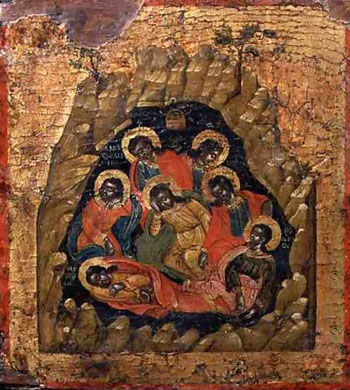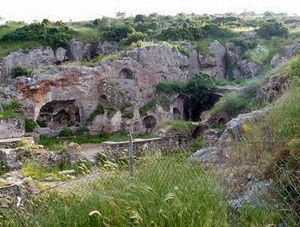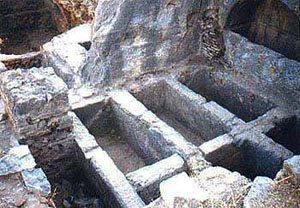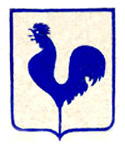 |
Stories & Legends
The Seven Sleepers of Ephesus
Hugh O’Reilly
The story of the Seven Sleepers of Ephesus was already well known by the 6th century and their feast day was celebrated by Western and Eastern Church. The miracle was first described by Bishop Stephen of Ephesus (448-451). St. Gregory of Tours also wrote about it, and The Golden Legend of Jacobus de Voragine made it known throughout the Middle Ages.
Because of the verifiability of the incident and its immediate popularity around the world, the historicity of the Seven Sleepers of Ephesus was never doubted until the 16th century. It was the rise of Protestantism and, after that, the Enlightenment that put doubts about the Seven Sleepers, and it began to be called apocryphal and a legend.
For those who trust the good original sources mentioned, the long sleep of the seven youth is a miracle that God made to show the truth of the resurrection of the body. Their story follows.
The seven sleepers were born in the city of Ephesus in the mid-third century. When Emperor Decius (249-251) came into Ephesus for the persecution of the Christians, he commanded that temples to the pagan idols be built in the city, and that all should make sacrifice to the idols there, or else to be put to death.

The Seven Sleepers of Ephesus |
In this city were seven Catholic youths, Maximian, Malchus, Marcianus, Denis, John, Serapion, and Constantine, who refused to sacrifice to the idols. Having been accused before Decius for their Catholic faith, they determined to flee the city. So they gave their patrimony in alms to the poor, and went to hide in a cave on Mount Anchilos, where they passed their time in prayer, preparing for martyrdom.
When Decius learned where the seven youths were hiding, he ordered that the entrance of the cave be sealed with stones so that the youths would perish from hunger and thirst. Priests of the area and two fellow Catholics, Theodorus and Rufinus, wrote about their martyrdom and laid their report among the stones where the seven youth had been buried alive.
One hundred and eighty four years after, in the rule of Emperor Theodosius the Younger (408-450), all the persecutions against Christians had ceased and the Catholic Religion became the official Faith of the Empire. However, a heresy that denied the resurrection of dead bodies had taken root and was beginning to grow in that city of Ephesus. It was at this time that a certain man of Ephesus arranged in his will that a stable should be made on that mount for his pasturers and herdmen. And as work commenced on this stable, the stone construction that Decius had ordered to be made was discovered and the entrance to the cave was opened.
Then, those holy saints, who were inside that cave, awoke and stood, greeting each other in their accustomed manner, supposing that they had slept but one night. Again, they affirmed their resolve to never sacrifice to the idols. And they sent one of their number, Malchus, to go to the city to buy bread for the group.
Malchus took five shillings and left the cave, and when he saw the masons and the stones before the cave, he was much amazed. But he thought little on the stones, for his concerns were of the many changes he saw around him. When he came to the gates of the city, he was in marvel. For he saw the sign of the cross on the gate, and his astonishment grew as he saw that sign of the cross on every gate and openly displayed everywhere in the city.
When he came to the sellers of bread and heard the men speak of God, then he was yet more abashed, and said: “What is this, that no man yesterday dare speak the name of Jesus Christ, and now every man confesses himself to be Christian? This cannot be the city of Ephesus, for it is something different, I know not what.” When he asked and was told that in truth it was Ephesus, he supposed that he had erred, and thought to return to his fellows. But first he sought to purchase the bread so they would have food to eat.

The cave of the Seven Sleepers on the slopes of Mount Anchilos, below, their tombs
 |
But when he showed his money to sellers, they marveled and began to speak among themselves that this young man had found some old treasure. Seeing their distrust and fearing they would bring him before the Emperor, Malchus tried to leave, but they would not let him go but insisted he show them where he had found this ancient treasure.
When Malchus would not speak, they put a cord about his neck and drew him through the city to its center square. News was already spreading that a young man had found ancient treasure, so that a crowd of the city assembled around him, and he confessed there that he had found no treasure. And he beheld them all, but he could identify no man there of his kindred or lineage.
When Saint Martin, the Bishop of the city, and Antipater, its Consul, heard of this youth who was raising a commotion in the city, they sent for him. When they brought him to the church, he thought he was being led to the Emperor Decius. The Bishop and the Consul marveled at the money, and they demanded to know where he had found this treasure. And he answered that he had found nothing, but this was come to him of his kindred and patrimony. Then they ask him from what city he came. And he replied, “I know well that I am of this city, if this be the city of Ephesus.”
And the Consul said to him: “Let thy kindred come and witness for you.” And Malchus named them, but none knew them. And they said that he was feigning to escape some crime or evil. For the Consul said, “How can we believe that this money came to you from your friends, when it is more than 180 years since it was made and forged in the first days of Emperor Decius? How can you claim such lineage when you are young? Why do you imagine you can deceive the wise and ancient men of this city of Ephesus? Therefore I command that you be held until you have confessed where you have found this money.”'
Then Malchus knelt down before them and said, “In the name of Christ Jesus, lords, tell me what I ask of you and I will answer truly all you ask. Where is Decius the Emperor who was in this city of Ephesus?”
The Bishop told him that Decius had been Emperor many years ago. And Malchus said: “Sire, hereof I am greatly abashed and no man believes me, for I know well that we fled for fear of Decius the Emperor, and that yesterday he entered into this city, if this be the city of Ephesus.”
Then the young man told the Bishop: “Follow me, and I shall show to you my fellows who are hiding with me in the mount Anchilos, so that you might question and believe them. They will tell you also that we fled from Emperor Decius.”
So they went with him, along with a great multitude of the people of the city. Malchus entered first into the cave, and the Bishop next after him. And there, at the entrance, they found among the stones the letters sealed with seals of silver.
And then the bishop called to all who had come thither, and read them what was written there, and all that heard it were all abashed and marveled. Then they saw the saints sitting in the cave, their visages fresh and vigorous, and, kneeling down, they glorified God.

Emperor Theodosius on his way to Ephesus (window in Rouen Cathedral, 1200) |
After this miracle became known, Emperor Theodosius came from Constantinople to Ephesus, and ascended in to the mountain to the cave.
And as soon as the blessed saints of Our Lord saw the Emperor come, their visages shone like to the sun. Then the Emperor glorified Our Lord and embraced the seven sleepers, and said: “I see you now like as I should see Our Lord raising Lazarus.”
And then Maximilian said to him: “Believe us, for in truth Our Lord has raised us before the day of the great resurrection. And so that you might believe firmly in the resurrection of the dead, verily we are raised as you see, and live. And like the child is in the womb of his mother without feeling harm or hurt, in the same wise we have been living and sleeping, lying here without feeling anything.”
And after giving this witness, they inclined their heads to the earth, and gave up their spirits at the command of Our Lord Jesus Christ, and so died.
Then the Emperor arose, weeping strongly, and embraced them and kissed them. And he commanded that precious sepulchers of gold and silver be made and that their bodies should be buried therein. That same night, however, the seven youths appeared to the Emperor in a dream and told him that he should allow them to lie in the earth, as they had lain before, until the time they should be raised again by Our Lord.
Then the Emperor commanded that the place should be adorned nobly and richly with precious stones. Since they were raised in the year of Our Lord 434, and Decius reigned but one year and three months and that was in the year of Our Lord 250, they slept 184 years.

Adapted from The Golden Legend of Jacobus de Vorgaine
Posted on January 28, 2012


Related Topics of Interest
 The 40 Martyrs of Sebaste The 40 Martyrs of Sebaste
 St. Sebastian, Soldier and Martyr St. Sebastian, Soldier and Martyr
 The Martyrs of Japan The Martyrs of Japan
 The Heroism of St. Marciana, Martyr The Heroism of St. Marciana, Martyr
 The Water of Count Gerald of Aurillac The Water of Count Gerald of Aurillac
 New Vatican Norms for Establishing Martyrs New Vatican Norms for Establishing Martyrs

Related Works of Interest
| |
|
Legends | Religious |
Home | Books | CDs | Search | Contact Us | Donate

© 2002-
Tradition in Action, Inc. All Rights Reserved
|
 |
|